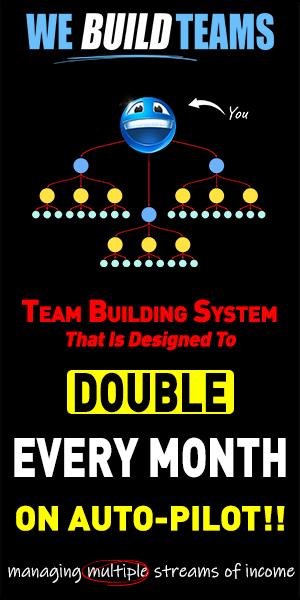Still Chasing Prospects? Here’s How Sparky AI Turns Reluctant Strangers into Ready-to-Join Teammates—While You Sleep
(Instant access via my referral link: UseThisSystem.com)
Picture Tomorrow Morning
You open your phone at 8 a.m. and see three calendar bookings from people who watched your presentation overnight.
You didn’t cold-message them, you didn’t nag them for a decision, and you definitely didn’t stay up late fiddling with funnels.
That is everyday reality for Sparky AI users—and it’s the reason I moved my entire team onto the platform.
What Exactly Is Sparky AI?
Sparky AI is a cloud platform that bolts a full-time, never-tired sales assistant onto your network-marketing business.
It performs four jobs that normally eat your evenings:
-
Attracts the Right Eyes – AI-driven Facebook™ and Instagram™ ads pinpoint people who already click on “work-from-home” and “passive income” content.
-
Starts the Conversation – The moment someone opts in, Sparky texts, emails, or even drops a friendly voicemail that sounds like you recorded it.
-
Keeps the Fire Hot – Over the next days it mixes calls, SMS nudges, and retargeting ads so no one forgets you exist.
-
Guides New Reps – The second they join, a built-in training path shows them what to do next—saving you hours of hand-holding.
Result: Your role shrinks to answering genuine questions and welcoming new members.
Five Benefits Hesitant Marketers Care About
1. Leads on Autopilot—Even If Ads Scare You
You choose a budget (as low as £5/day). Sparky AI’s template ads, proven audiences, and on-board pixel tracking do the rest. No Power-Editor overwhelm, no endless split-testing.
2. Follow-Up That Feels Human, Not Robotic
Messages reference a prospect’s first name, time zone, and behaviour. Open an email at 10 p.m.? The next touch waits until morning. Prospects feel pursued, never pestered.
3. Unlimited Touches, Zero Extra Fees
CRMs typically charge per SMS or per “credit.” Sparky AI lets you hammer every lead—assigned or self-generated—with as many calls, texts, and emails as it takes.
4. Built-In Multiple Income Streams
Inside your dashboard sit complementary offers (wellness, fintech, AI tools). Switch one on, and all your existing leads see it immediately—no fresh ad spend required.
5. 90-Day Profit Assurance
If you aren’t in profit after three months, your subscription pauses until you are. That removes the only meaningful risk: paying for software that doesn’t pay you back.
“But I’m Not Tech-Savvy…”
You won’t write a single line of code or copy a single piece of HTML.
Setup looks like this:
-
Create a free account.
-
Paste your company video or choose a pre-built one.
-
Click “Launch Campaign.”
The system spins up your funnel, attaches the autoresponder, and schedules ads. Average setup time: 12 minutes (I timed mine).
“Will My Prospect Think It’s Spam?”
Here’s a real metric from my dashboard last week:
-
58 opt-ins
-
54 opened the first SMS link (93 % open rate)
-
31 booked a discovery call
Those numbers crush any cold-DM script because Sparky AI contacts prospects when they’re engaged and via the channel they prefer. They feel served, not sold.
“What If I Can’t Afford a Monthly Fee?”
Start on the Free Membership:
-
Personal dashboard
-
Unlimited follow-up on leads you bring in yourself
-
Ability to connect two of your existing companies
Use those tools to close your first sales, then graduate to the Growth Plan (£97/mo) only when you’re already in profit—protected further by the 90-day guarantee.
Your Next 24 Hours with Sparky AI
-
Sign up here → UseThisSystem.com (cost: £0).
-
Follow the on-screen wizard; connect your primary opportunity.
-
Launch the suggested “Curious About Residual Income?” funnel.
-
Wake up tomorrow to new leads—and messages you didn’t have to write.
Every day you delay, your warm market cools further and competitors scoop the digital ad space you could own. Automation isn’t the future; it’s the present—and Sparky AI makes it painless.
Stop chasing. Start welcoming.
👉 Try Sparky AI free now: UseThisSystem.com


